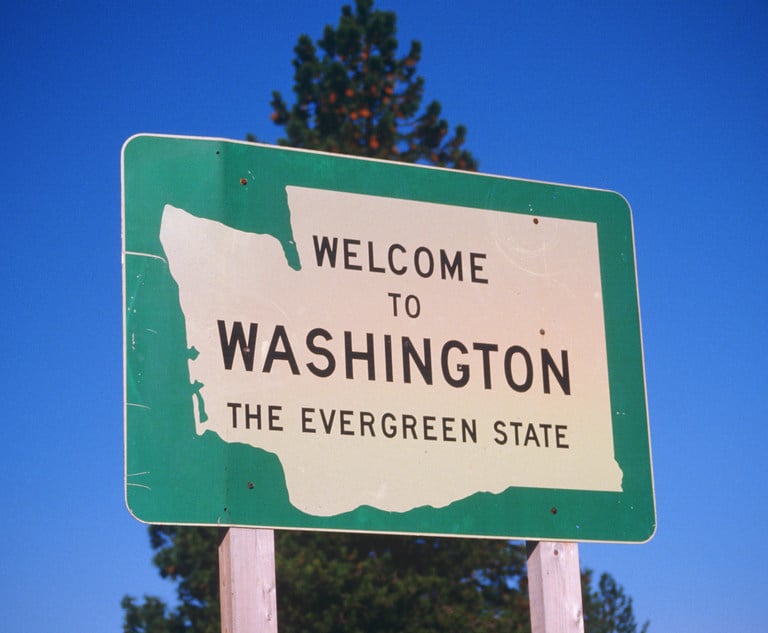The Impact of Washington’s Sales Tax Law Changes for Professional Service Firms
Washington State’s sweeping tax reforms, enacted in May 2025 via Engrossed Substitute Senate Bill 5814 (ESSB 5814) and signed into law by Governor Bob Ferguson on May 20, 2025, represent one of the largest expansions of the state’s sales tax base in decades. Effective October 1, 2025, these changes aim to address a projected $16 billion budget shortfall by broadening retail sales tax to include certain professional services previously exempt, while also hiking Business & Occupation (B&O) tax rates. For professional service firms—such as law firms, accounting practices, consulting agencies, IT providers, and marketing outfits—the impacts are multifaceted: some services remain untouched, but others face new compliance burdens, potential revenue erosion, and competitive pressures. The reforms are projected to generate $1.1 billion over two years for the state’s operating budget, with hundreds of millions flowing to local governments via shared sales tax proceeds.
While core “human-effort” services like traditional litigation, estate planning, tax compliance, and contract reviews stay exempt under the Service & Other Activities B&O classification (taxed at 1.5%), the devil is in the details. The law strikes prior exclusions for “digitally automated services” (DAS)—defined as any electronically transferred service using software applications—potentially pulling in hybrid offerings. This shift, combined with B&O rate increases, could add 0.35% to 0.3% in effective tax burdens for many firms, per estimates from the Washington Society of CPAs (WSCPA).
Key Changes and Their Scope
The reforms target a $3.6 billion revenue boost over four years, but professional services feel the pinch through indirect and direct taxation. Here’s a breakdown:
| Change | Effective Date | Details | Impact on Professional Service Firms |
|---|---|---|---|
| Sales Tax Expansion to Certain Services | Oct. 1, 2025 | Retail sales tax (6.5% state + local rates up to 10.5%) now applies to IT support, custom software development, advertising/marketing, temporary staffing, event/live presentations, security/investigation, and DAS (e.g., online portals or automated tools). Excludes pure professional services like legal/accounting unless digitized. | Firms blending tech (e.g., CPAs using client portals or lawyers offering e-discovery) may need to segregate taxable vs. non-taxable revenue. Out-of-state firms hit economic nexus if Washington sales exceed $100,000 annually. |
| B&O Tax Rate Increase for Services | May 20, 2025 (immediate) | Service & Other B&O rate rises from 1.75% to 2.1% for gross income >$5M; new 0.5% surcharge on firms >$250M (exemptions for manufacturing/food). Financial institutions >$1B net income: 1.2% to 1.5%. | Larger firms (e.g., Big Four accounting or mid-size law practices) face ~$10,000-$100,000+ annual hikes; smaller ones (<$5M) see minimal direct hit but pass-through costs from vendors. |
| Transitional Relief for Contracts | Oct. 1, 2025 – Mar. 31, 2026 | Pre-Oct. 1 contracts exempt from sales tax collection until Apr. 1, 2026, if no material amendments; invoiced/paid pre-effective date stays under old rules. | Grace period eases immediate cash flow but requires contract audits; post-Mar. 2026, full retailing B&O and sales tax apply. |
| Sourcing & Nexus Rules | Oct. 1, 2025 | Services “sourced” to customer location; economic nexus for remote sellers at $100K threshold. | Non-WA firms serving WA clients (e.g., national consultancies) must track footprints, update contracts, and register for tax collection—risking audits/penalties otherwise. |
These tweaks align with a national trend: 30+ states now tax digital services, but Washington’s broad DAS definition stands out, potentially classifying 20-30% of hybrid professional engagements as taxable.
Direct and Indirect Impacts on Firms
- Compliance Overhaul: Expect 20-50 hours of initial admin per firm for system updates, per Withum estimates. Firms must inventory services, classify DAS elements, and integrate tax collection into billing—non-compliance penalties start at 15% of tax due plus interest. The WA Department of Revenue (DOR) issued interim guidance in August-September 2025, clarifying IT/staffing exemptions but leaving ambiguities (e.g., “live presentations” via Zoom).
- Financial Strain: For a $10M-revenue consulting firm with 20% taxable services, expect ~$20,000-$30,000 in new annual sales tax remittance (at 8.5% average rate), plus B&O hikes. Clients may push back on price increases, eroding margins by 2-5%. Out-of-state competition (untaxed in home states) gains an edge, potentially driving 5-10% market share shifts.
- Operational Shifts: Pricing models must adapt—e.g., unbundle DAS for separate taxation. Vendor contracts (e.g., software tools) may become taxable purchases, adding costs. The WSCPA lobbied unsuccessfully for CPA exemptions, warning of “unintended consequences” like reduced tech adoption.
- Broader Ripple Effects: Budget pros like the Washington Policy Center predict slowed growth, with tech/consulting hubs (Seattle) at risk of relocation. A Comcast lawsuit challenges the ad services tax as unconstitutional, which could set precedent if upheld.
Preparation Roadmap for Firms
To mitigate risks, act by year-end 2025—delays could trigger Q1 2026 audits. Prioritized steps:
- Audit Operations: Review service lines against DOR FAQs (e.g., Sep. 17 guidance on staffing). Classify revenue streams; use tools like Avalara for automation.
- Update Systems & Contracts: Integrate sales tax into ERP/billing software. Amend pre-Oct. 1 deals to avoid triggering changes; add nexus clauses for remote work.
- Nexus & Sourcing Check: Calculate WA exposure; register via DOR’s My DOR portal if over thresholds. Document customer locations for sourcing.
- Financial Modeling: Forecast impacts with SALT experts—e.g., Geffen Mesher offers free initial assessments. Explore pass-through pricing or exemptions (e.g., resale certificates for resold services).
- Monitor Developments: Track DOR updates (e.g., full rules by Jan. 2026) and litigation. Join groups like WSCPA for advocacy.
- Seek Expertise: Consult firms like Withum, Moss Adams, or Leyton for tailored SALT audits—costs (~$5K-$15K) often offset by avoided penalties.
These reforms underscore Washington’s pivot to service taxation amid fiscal pressures, but proactive firms can turn compliance into a competitive audit (e.g., via tech efficiencies). For personalized guidance, reach out to the DOR or a local tax advisor—the clock is ticking toward full enforcement in April 2026.
